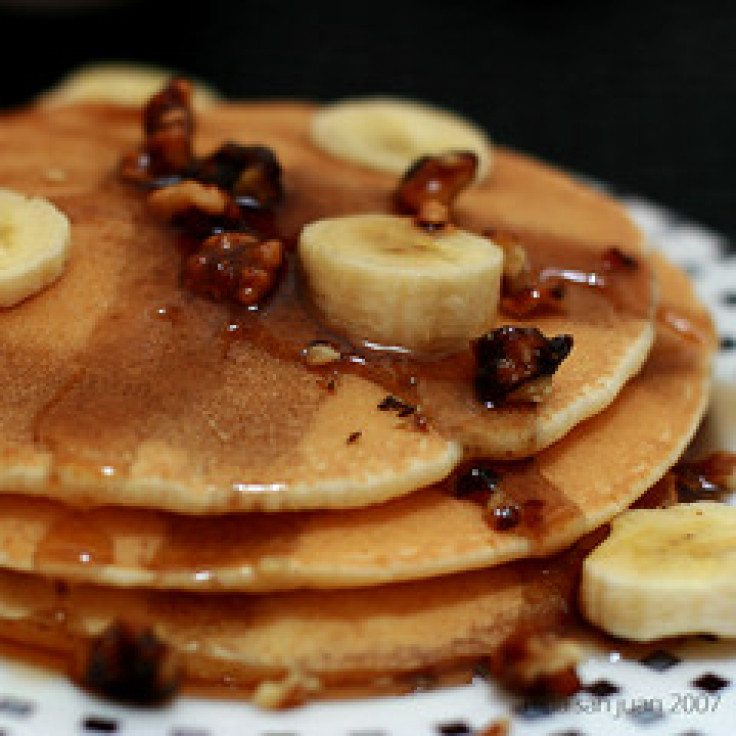URI pharmacy researcher finds beneficial compounds in pure maple syrup
Most are disease-fighting anti-oxidants


KINGSTON, R.I. - March 22, 2010 - Before you dig in to your next stack of French toast or waffles, you might want to pour on pure maple syrup.
That's because University of Rhode Island researcher Navindra Seeram, who specializes in medicinal plant research, has found more than 20 compounds in maple syrup from Canada that have been linked to human health, 13 of which are newly discovered in maple syrup. In addition, eight of the compounds have been found in the Acer (maple) family for the first time.
Several of these anti-oxidant compounds newly identified in maple syrup are also reported to have anti-cancer, anti-bacterial and anti-diabetic properties.
Prior to the study, the Federation of Quebec Maple Syrup Producers already knew that its product was full of naturally occurring minerals such as zinc, thiamine and calcium. But it enlisted Seeram to research the presence of plant anti-oxidants. The Federation awarded Seeram a two-year, $115,000 grant with the help of the CDAQ and Agriculture and Agri-Food Canada. His research continues to determine if the compounds exist in beneficial quantities.
Serge Beaulieu, president of the Federation of Quebec Maple Syrup Producers, said Seeram's lab is but one in an expanding multi-national network of research facilities dedicated to the study of maple products from Canada.
During his maple syrup research, Seeram and his research team found phenolics, the beneficial class of anti-oxidant compounds also found in berries. We speculated that the sugar maple is wounded when it is tapped for its sap, and that it secretes phenolics as a defense mechanism.
Seeram said the sap probably has low concentrations of these native phenolics. But when you boil the sap down, there could be higher levels because syrup is a highly concentrated liquid. Plus, the natural plant bioactives could remain intact or undergo process-induced chemical changes during the heating process resulting in further-derived bioactive compounds.
In a certain sense, people view sap as the life blood of the tree, Seeram said. Maple syrup is unique in that it is the only commercial product in our diet that comes from a plant's sap.
This is a niche resource for northeast North America. Canada is the biggest producer of maple syrup and the United States is the biggest consumer.











